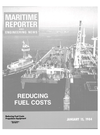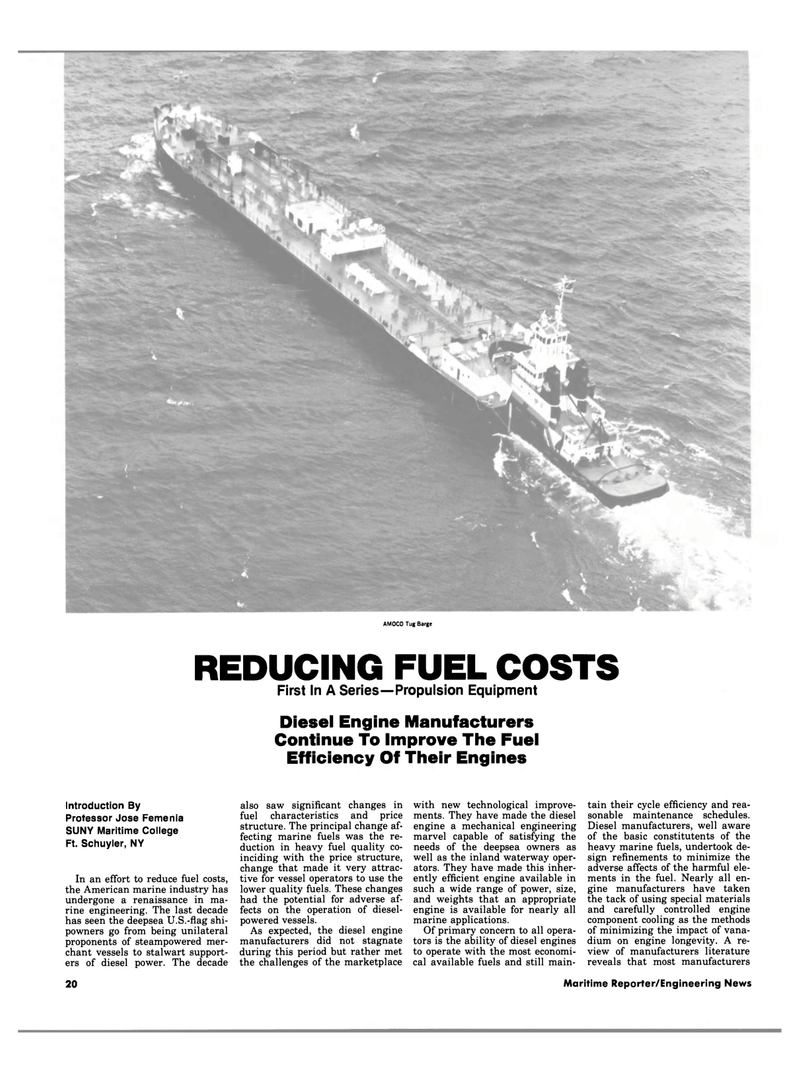
Page 18: of Maritime Reporter Magazine (January 15, 1984)
Read this page in Pdf, Flash or Html5 edition of January 15, 1984 Maritime Reporter Magazine
AMOCO Tug Barge
REDUCING FUEL COSTS
First In A Series—Propulsion Equipment
Diesel Engine Manufacturers
Continue To Improve The Fuel
Efficiency Of Their Engines
Introduction By
Protessor Jose Femenia
SUNY Maritime College
Ft. Schuyler, NY
In an effort to reduce fuel costs, the American marine industry has undergone a renaissance in ma- rine engineering. The last decade has seen the deepsea U.S.-flag shi- powners go from being unilateral proponents of steampowered mer- chant vessels to stalwart support- ers of diesel power. The decade also saw significant changes in fuel characteristics and price structure. The principal change af- fecting marine fuels was the re- duction in heavy fuel quality co- inciding with the price structure, change that made it very attrac- tive for vessel operators to use the lower quality fuels. These changes had the potential for adverse af- fects on the operation of diesel- powered vessels.
As expected, the diesel engine manufacturers did not stagnate during this period but rather met the challenges of the marketplace with new technological improve- ments. They have made the diesel engine a mechanical engineering marvel capable of satisfying the needs of the deepsea owners as well as the inland waterway oper- ators. They have made this inher- ently efficient engine available in such a wide range of power, size, and weights that an appropriate engine is available for nearly all marine applications.
Of primary concern to all opera- tors is the ability of diesel engines to operate with the most economi- cal available fuels and still main- tain their cycle efficiency and rea- sonable maintenance schedules.
Diesel manufacturers, well aware of the basic constitutents of the heavy marine fuels, undertook de- sign refinements to minimize the adverse affects of the harmful ele- ments in the fuel. Nearly all en- gine manufacturers have taken the tack of using special materials and carefully controlled engine component cooling as the methods of minimizing the impact of vana- dium on engine longevity. A re- view of manufacturers literature reveals that most manufacturers 20 Maritime Reporter/Engineering News

 17
17

 19
19
